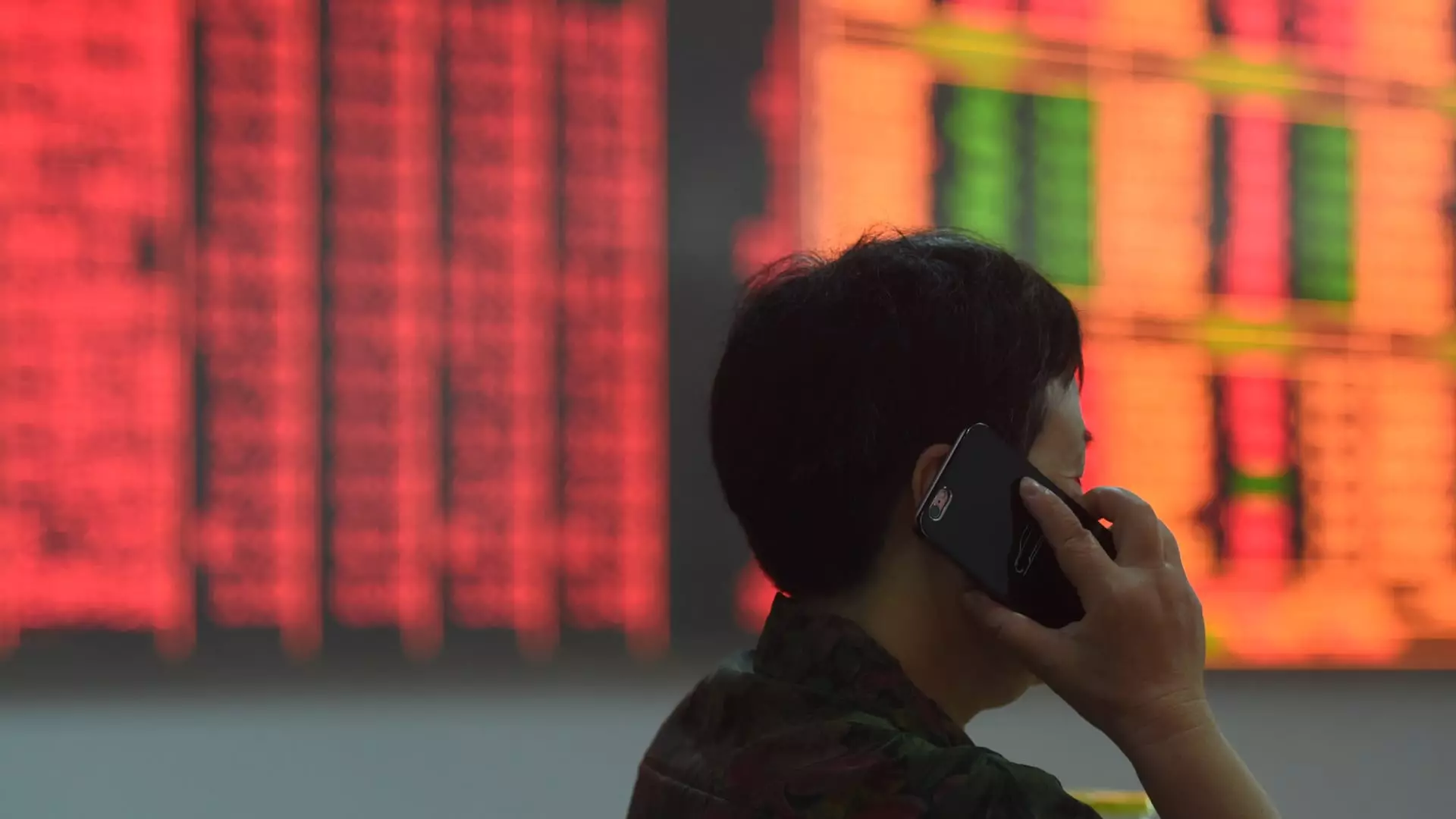In the bustling corridors of power in Beijing, the recent Politburo meeting led by President Xi Jinping has left a palpable mark on market sentiments, driving the Shanghai Composite to a three-month high. The meeting’s primary agenda was to halt the ongoing decline in the real estate sector and to bolster both fiscal and monetary policies. However, the vagueness of the specifics contained within this meeting prompts questions regarding the actual effectiveness of these policies in tackling the issues affecting the Chinese economy. Analysts are eager to decipher whether this high-profile initiative is a genuine response to economic distress or merely a calculated move to stabilize investor confidence.
While the sentiment uplift might be significant, it bears mentioning that superficial measures will only scratch the surface of deeper, systemic problems within the Chinese economy. According to Ting Lu, Nomura’s chief economist for China, the immediate jolt from such “shock and awe” tactics could be meant to rekindle market confidence. However, he cautions that without well-formed strategies, the recovery may ultimately be short-lived. The situation is compounded by the sluggish growth in the world’s second-largest economy, directly tied to a continuous slump in the real estate sector, which has been grappling with a contraction for four years.
A recurring theme in recent economic reports is the stark reality facing China’s consumers and businesses: retail sales have barely budged by over 2% in recent months, while industrial profits have stagnated throughout the year. This trend highlights not only the immediate challenges posed by the property downturn but also a larger malaise affecting consumption and investment behavior. Predictions indicate that further stimulus might provide only a minimal impact of up to 3% on China’s annual GDP. This limited effectiveness raises critical concerns about the government’s ability to instill transformative changes.
While the People’s Bank of China has announced interest rate cuts and measures aimed at alleviating mortgage burdens, skepticism lingers in the air. Paul Christopher, from Wells Fargo Investment Institute, observed that the lowered interest rates have failed to ignite consumer confidence, as borrowing remains an unattractive prospect for hesitant individuals. A growing chorus of investors seems to be leaning towards selling emerging market equities, with concerns rooted in both a lack of confidence in sustained government intervention and potential longer-term repercussions of psychological strains on household and business sentiment.
The implications of these events reach far beyond China’s borders. Observers are acutely aware of the global nature of economic interconnectedness, with market reactions in China creating ripple effects worldwide. As U.S. Federal Reserve policy adjusts towards a more accommodative stance, Chinese policymakers find themselves with more maneuvering room for potential rate reductions. However, despite the possibilities, the actual immediate economic impact remains largely uncertain. A recent survey from the China Beige Book indicates that corporate borrowing is declining, even as interest rates hover at historic lows, suggesting that the allure of cheap financing is no longer enough to spur activity.
Experts believe the psychological weight of the real estate slump outweighs temporary gains from stock rallies. Shehzad Qazi from the China Beige Book paints a cautious picture concerning future retail sales, hinting at slight increases over the next few months but emphasizing that long-term recovery will depend on solid structural reforms. The positive sentiment observed in the Chinese stock market is certainly noteworthy, but analysts impose a bracing reminder: without operationalizing the announced policies effectively, the rally may merely be a fleeting phenomenon rather than a genuine turnaround.
Despite the uncertainty and reservations expressed by many investment professionals, there has been a noteworthy uptick in investors taking a chance on Chinese stocks. The CSI 300 index’s climb indicates growing enthusiasm; nonetheless, this enthusiasm needs to be tempered with caution. Here, it’s crucial to focus on the underlying health of the economy rather than get carried away by market uplifts that often come with strings attached. Bruce Liu of Esoterica Capital notes the vital importance of restoring trust in capital markets for sustained economic recovery, as a well-functioning capital market is essential for fostering both growth and stability.
While recent political maneuvers have stirred market optimism, they likely won’t resolve the structural issues deeply embedded within the economy. Stakeholders must remain vigilant and critical in their assessments of forthcoming policies and their actual implementation. As policymakers confront the dual challenges of encouraging growth while addressing consumer sentiment, the lens through which investors view the situation must remain clear-eyed and realistic, ensuring a focus not only on the immediate signal but also on its longer-term repercussions.

